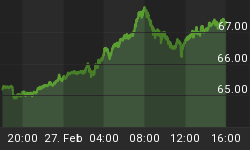A recent ZeroHedge article (Bank Of America Can Not Deny It Used Repo 105, Response From PricewaterhouseCoopers Pending; The BofA QSPE's) probes the possibility of BofA engaging in Repo 105-like activities in regards to their QSPEs (off balance sheet vehicles). ZH does seem to uncover a lot of dirt these days. After reading the article, I think it is worth blog fans time to delve deeper into the off balance sheet world of BofA. Here are some older blog posts that ask the hard questions and raises some additional ones.
And the next AIG is... (Public Edition, and yes, I know there is a typo in Mr. Tizzio's name) Free registration required to access the naked swap note.
I have posted this warning of Bank of America's naked swap writing to my subscribers a few weeks ago. Since BAC is reporting this week, I have decided to make my suspicions public. I have found evidence that this bank has $32 billion of naked (as in apparently unhedged) swaps on its books - just like AIG. The difference is this bank is bigger, probably has more exposure, and has already been bailed out - several times. Oh, did I mention the insured collateral is nearly half BBB rated or lower??? How about extreme management issues at the top, and I mean all the way to the top (the CEO may actually bring down the ex-treasury secretary and maybe even the Fed Chairman. A trunk full of junk, surrounded by drama! It should be an interesting conference call tomorrow when they report, that is if anybody decides to ask the right questions...
If a Bubble Bubble Bursts Off Balance Sheet, Will Anyone Be There to Hear It?: Pt 3 - BAC (the bank
Bank of America securitizes residential mortgages, commercial mortgages, credit card receivables, and home equity loans and automobile loans that it originates or purchases from third parties. As of June 30, 2009, the total principal balance outstanding of securitized portfolio was nearly 1.7 trillion (including 1.1 trillion of mortgage backed securities, securitized by Government sponsored entities). The total senior securities and subordinated securities held by BAC on its balance sheet amounted to about $27 billion (28% of tangible equity) and $10 billion (10% of tangible equity), respectively.

Key observations
- In the normal course, QSPE (securitization vehicles) are treated as separate entities with no right of recourse. However, the Bank has sold loans to these QSPE with various representations and warranties related to, among other things, the ownership of the loan, validity of the lien securing the loan, absence of delinquent taxes or liens against the property securing the loan, the process used in selecting the loans for inclusion in a transaction, the loan's compliance with any applicable loan criteria established by the buyer, and the loan's compliance with applicable local, state and federal laws. Under the Bank's representations and warranties, the Bank may be required to either repurchase the mortgage loans with the identified defects or indemnify the investor or insurer, in case of breach. In such cases, the Bank bears any subsequent credit loss on the mortgage loans. It is worth noting that during the three and six months ended June 30, 2009, the Bank repurchased $222 million and $582 million of loans from securitization trusts as a result of the Bank's representations and warranties, and corporate guarantees. In addition, the Bank repurchased $208 million and $968 million of loans from the securitization trusts as a result of modifications, loan delinquencies or optional clean-up calls during the three and six months ended June 30, 2009.The Bank also repurchased $77 million of loans from trusts securitizing home equity loans during first six months of 2009. However, the amount of loans repurchased during the three and six months ended June 30, 2009 are very insignificant when expressed as % of tangible equity which was $97 billion as of June, 30, 2009. This may not last, for as buyers, investors and insurer get more aggressive, and/or educated, they may push for more action on indemnification. For instance, I am confident that Wachovia's poorly written portfolio is rife with overstatement of income, over statement of assets, understatement of liabilities and debt, misrepresentation of collateral use, etc., as was endemic for the industry in the era of liar loans. A thorough audit of those loans should enable an activist investor to put back a significantly higher portion of that debt to BAC.
- In the case of credit card securitization, the Bank is required to maintain a seller's retained interest of 4-5% as per the legal documents of the securitization trusts and as of June 2009, this seller's interest amounted to $9.7 billion or 10% of tangible equity. The seller's interest is not represented by security certificates, is carried at historical cost (this means it is drastically overstated), and is classified within loans on the Bank's Balance Sheet.
Well, it looks as if I was onto something in Banks Swallow Another $30 billion or So in More Losses as Their Share Prices Surge (Again).
From Bloomberg:
March 5 (Bloomberg) -- Fannie Mae and Freddie Mac may force lenders includingBank of America Corp., JPMorgan Chase & Co., Wells Fargo & Co. and Citigroup Inc. to buy back $21 billion of home loans this year as part of a crackdown on faulty mortgages.
For the sake of nostalgia, an old post reviewing B of A's quarter last year,A Glance at the Bank of America recent quarter.















